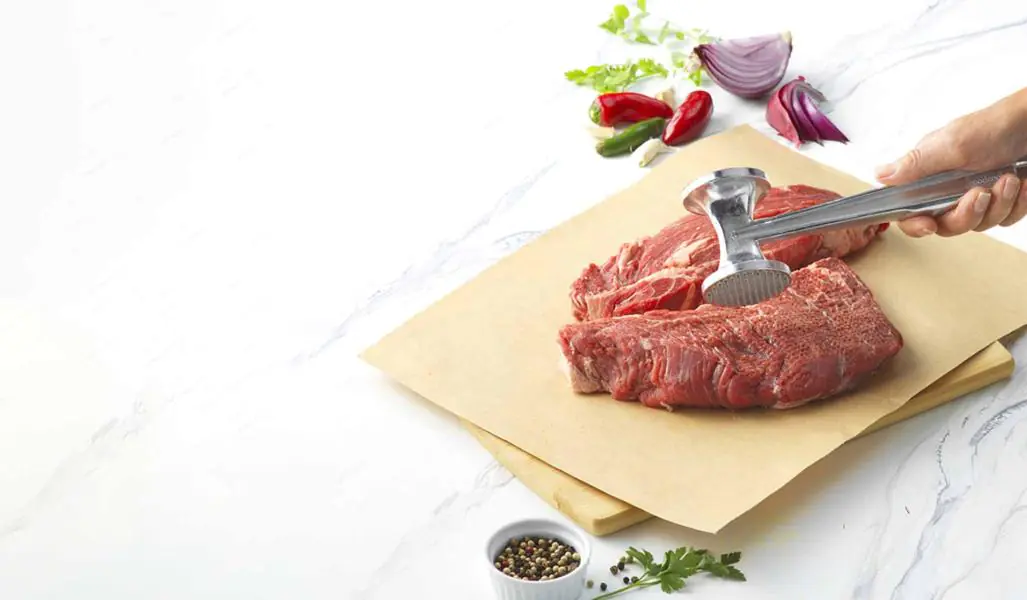Introduction to Natural Meat Tenderizers
Welcome, chicken lovers, to a deep dive into the world of natural meat tenderizers. Whether you’re grilling, frying, or baking, the secret to a flavorful, juicy piece of meat often lies in how well you tenderize it. Understanding what is a good natural meat tenderizer can transform your cooking experience.

Why Tenderize Meat?
Meat tenderizing is a crucial step that affects the texture and flavor of your dish. Tenderizing breaks down the muscles and fibers, making the meat more tender and easier to chew. This is especially important when dealing with tougher cuts of meat or if you want to ensure that your chicken is as juicy and flavorful as possible.

The Science Behind Meat Tenderization
Before diving into the best natural tenderizers, its essential to understand the science behind meat tenderization. Meat is primarily composed of protein fibers called myofibrils and connective tissues like collagen. When you tenderize meat, you break down these complex tissues, making the meat softer and more pliable.
How Enzymes Help in Tenderizing
Enzymes play a crucial role in the tenderization process. Natural enzymes found in certain fruits and vegetables can break down proteins effectively. This is why ingredients like papaya, pineapple, and kiwi are often touted as natural meat tenderizers.
Natural Meat Tenderizer Options

Papaya: The Tropical Tenderizer
Papaya contains an enzyme called papain, which is highly effective in breaking down meat fibers. Simply mash a ripe papaya and spread it over your meat. Let it sit for a few hours, and you’ll notice a significant difference in the meat’s texture.
Pineapple: Another Tropical Delight
Pineapple is another tropical fruit that works wonders as a natural meat tenderizer. It contains bromelain, an enzyme that breaks down proteins. Be cautious not to leave pineapple on the meat for too long, as it can make the meat mushy.
Kiwi: The Small Fruit with Big Impact
Kiwi contains actinidin, another powerful enzyme that can tenderize meat. A small amount can go a long way; a single kiwi can tenderize about two pounds of meat. It’s a quick and effective method for those who are short on time.
Dairy Products: Milk, Yogurt, and Buttermilk
Dairy products such as milk, yogurt, and buttermilk are excellent for tenderizing meat. The lactic acid and calcium in these products break down proteins and fibers, resulting in tender meat. This method is particularly effective for chicken.
Vinegar and Acids
Vinegar and other acidic ingredients like lemon juice, apple cider vinegar, and wine can also act as natural tenderizers. The acid in these liquids breaks down the proteins in the meat, making it more tender. However, it’s essential to use acids sparingly to avoid altering the meat’s natural flavor too much.
Apple Cider Vinegar
Apple cider vinegar is a popular choice for marinating and tenderizing meat. Its mild acidity makes it perfect for chicken. Marinate your chicken in a mixture of apple cider vinegar, water, and spices for up to 24 hours for the best results.
Lemon Juice
Lemon juice is another excellent acid that can tenderize meat. It adds a zesty flavor while breaking down proteins and fibers. Use it in moderation to avoid making the meat too sour.
Herbs and Spices
Certain herbs and spices also have natural tenderizing properties. Ingredients like garlic, ginger, and turmeric can add flavor and tenderize meat. These are great options for those looking to add a bit of spice to their dishes while ensuring tender meat.
How to Use Natural Meat Tenderizers
Applying Fruit-Based Tenderizers
When using fruit-based tenderizers like papaya, pineapple, or kiwi, its best to mash the fruit into a paste and apply it evenly over the meat. Let it sit for at least an hour but not more than four hours to avoid over-tenderizing.
Marinating with Dairy
Dairy-based tenderizers like buttermilk or yogurt are perfect for marinating chicken. Submerge the meat in the dairy product and let it sit in the refrigerator for several hours or overnight for maximum tenderness.
Using Acidic Tenderizers
Mix your preferred acid (vinegar, lemon juice) with water or oil and your favorite spices. Marinate the meat in this mixture for no more than eight hours. This method is particularly effective for tougher cuts of meat.
Herbs and Spices Rub
Create a spice rub using garlic, ginger, and turmeric. Rub it evenly over the meat and let it sit for a few hours before cooking. This not only tenderizes the meat but also infuses it with rich flavors.
Benefits of Using Natural Meat Tenderizers
Health Benefits
Natural meat tenderizers are free from chemicals and additives, making them a healthier option. They also often contain beneficial nutrients that can enhance the overall nutritional profile of your dish.
Free from Additives
Unlike commercial meat tenderizers, natural options do not contain any artificial additives or preservatives. This makes them a safer choice for those who are health-conscious.
Nutrient-Rich
Fruits like papaya and pineapple are rich in vitamins and minerals, which can add a nutritional boost to your meals. Similarly, dairy products provide calcium and protein, which are essential for a balanced diet.
Environmental Benefits
Using natural meat tenderizers is also better for the environment. These ingredients are biodegradable and do not contribute to chemical pollution.
Biodegradable
Natural ingredients break down easily in the environment, reducing the carbon footprint associated with cooking and food preparation.
Reduced Chemical Usage
By opting for natural tenderizers, you contribute to reducing the use of synthetic chemicals that can harm the environment.
Common Misconceptions About Meat Tenderizers
Myth: All Acids Over-Tenderize Meat
While its true that leaving meat in acidic marinades for too long can make it mushy, proper timing and ratios can yield perfect results. Understanding how to balance these factors is key.
Myth: Natural Tenderizers Arent as Effective
Some believe that natural tenderizers are less effective than commercial options. However, numerous kitchen tests have shown that natural ingredients can be just as effective, if not more so.
FAQs About Natural Meat Tenderizers
What is the best natural tenderizer for chicken?
Buttermilk is often considered the best natural tenderizer for chicken. Its mild acidity and creamy texture break down proteins without compromising the meats flavor.
How long should I marinate meat in a natural tenderizer?
The marinating time depends on the tenderizer used. For fruit-based tenderizers, 1-4 hours is sufficient. Dairy-based tenderizers can be used for several hours or overnight, while acidic tenderizers should not be used for more than 8 hours.
Can I use more than one type of natural tenderizer at once?
Yes, combining different natural tenderizers can yield excellent results. For instance, you can mix yogurt with a bit of lemon juice and spices for a multifaceted tenderizing effect.
Conclusion
Understanding what is a good natural meat tenderizer can significantly enhance your cooking experience, making your dishes more delicious and tender. Natural options like papaya, pineapple, kiwi, dairy products, and acidic ingredients offer effective and healthy ways to tenderize meat. So next time you’re preparing a meal, consider using these natural methods for the best results.
As an Amazon Associate, I earn from qualifying purchases.








